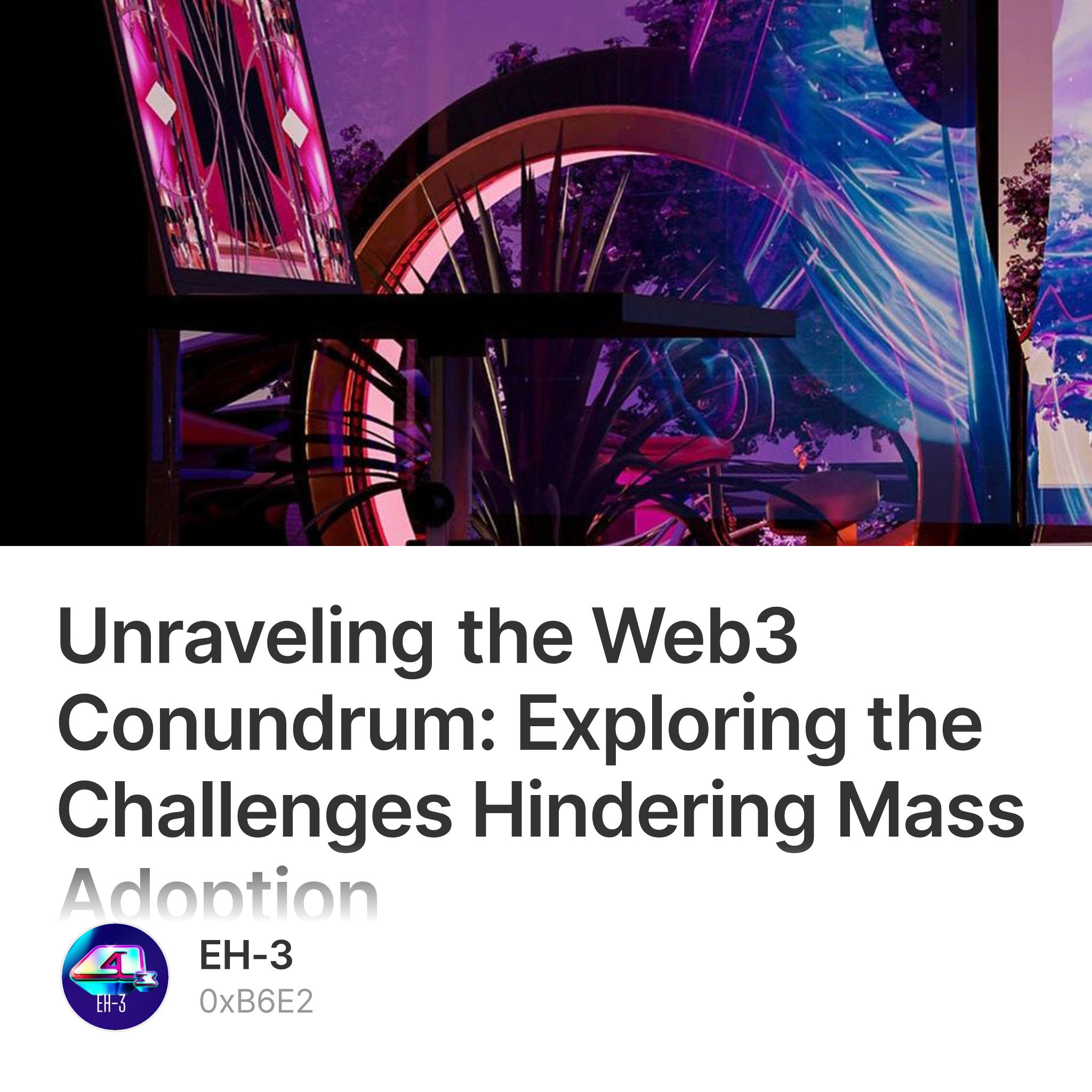As the tech sector hurtles into 2024, the echoes of a term that once captured imaginations are growing louder—Web3. A concept promising a decentralized internet experience, Web3 envisions a paradigm shift in how we interact with the digital world. This blog post explores whether Web3 will have a resurgence within the tech sector in 2024.
The Evolution of Web3
Web3 emerged as a response to the limitations of the current internet landscape dominated by centralized entities. It proposes a decentralized architecture where users have greater control over their data, trustless transactions, and blockchain technologies form the backbone of a new digital ecosystem. But has the time come for Web3 to shine?
Key Factors Shaping Web3's Destiny in 2024
-
Maturation of Blockchain Technology: The blockchain, the underlying technology of Web3, has matured significantly in recent years. Improved scalability, interoperability, and consensus mechanisms address longstanding challenges, paving the way for more robust Web3 applications.
-
Mainstream Adoption of Decentralized Finance (DeFi): The rise of decentralized finance (DeFi) platforms has showcased the potential of blockchain in reshaping traditional financial services. As more users engage with decentralized applications for lending, borrowing, and trading, the broader appeal of Web3 may gain traction.
-
NFTs and Digital Ownership: Non-fungible tokens (NFTs) have become a cultural phenomenon, allowing creators to tokenize digital assets and enabling new monetization models. The continued success of NFTs could propel Web3 into the mainstream consciousness as a viable framework for digital ownership and provenance.
-
Corporate Adoption of Blockchain: Corporations increasingly explore integrating blockchain solutions into their operations. This Blockchain-as-a-Service (BaaS) approach is a testament to the growing acceptance of decentralized technologies, potentially providing a springboard for Web3 applications in business environments.
Challenges on the Horizon
-
Regulatory Hurdles: The regulatory landscape remains a wildcard for Web3 technologies. More explicit guidelines and regulations may be necessary to provide a stable environment for development and adoption.
-
User Education and Experience: Web3's success hinges on its ability to simplify the user experience and overcome the steep learning curve of blockchain. If 2024 sees advancements in user-friendly interfaces and educational initiatives, Web3 adoption could be boosted.
-
Environmental Concerns: The environmental impact of blockchain, particularly proof-of-work consensus mechanisms, has been a point of contention. Innovations in consensus algorithms or adopting eco-friendly alternatives could address this concern.
Final Thoughts
As we venture into 2024, the fate of Web3 within the tech sector remains uncertain but tantalizing. The technological landscape has evolved, and Web3 stands at the crossroads of transformation and skepticism. Technological advancements, regulatory developments, and user acceptance will shape whether Web3 becomes a defining force in the tech sector or recedes into the annals of ambitious but unrealized ideas. Keep a close eye on 2024, for it might just be the year when Web3 redefines our digital future.
Stay in the Know with EH-3!
Jump in and dive into Web3; each month covers two new concepts within this exciting new space. For more information, go to the EH-3 website now!
#EH3 #stayintheknowwithEH3 #web3 #web3development #web3community #web3education #web3marketing #technicalwriting #technicalseo #technical #technicalwriter #technicalcontentwriter

